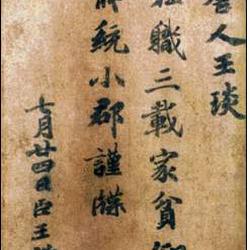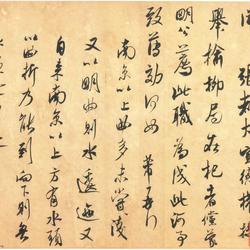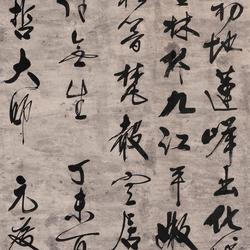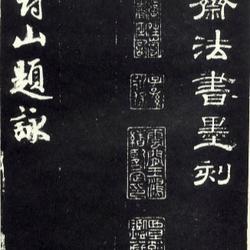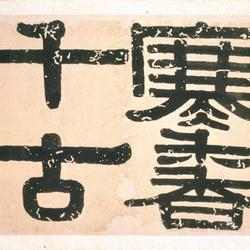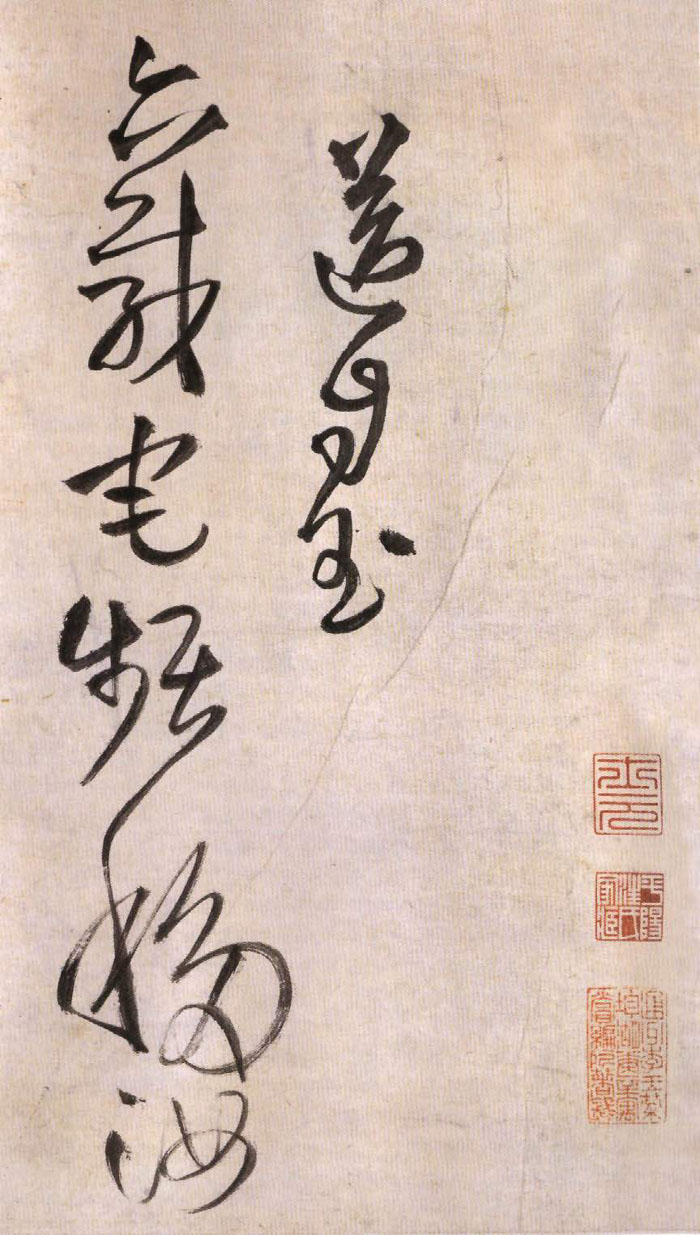
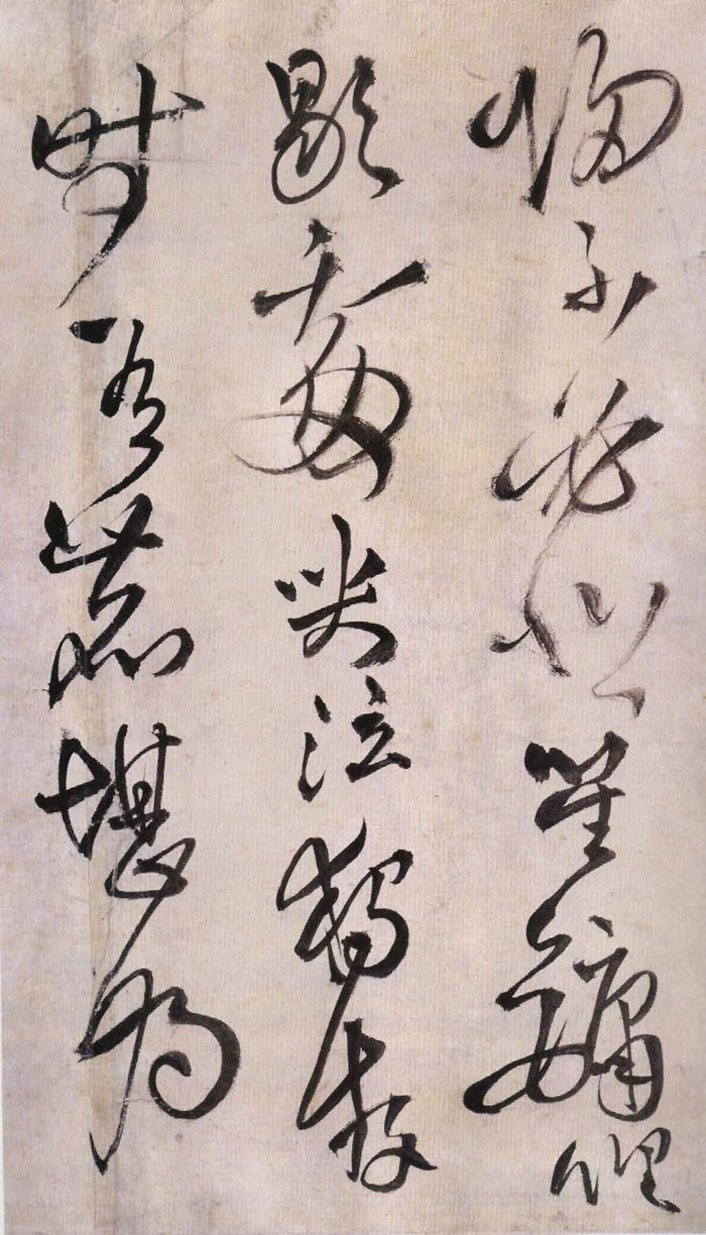
Wang Duo's "Wangwu Picture Poems Volume", collected by Tianjin Museum
Click to download and browse the high-definition version of Wang Duo's "Poems on the King's House" Wang Duo's "Poems on the King's House".rar
Appendix: "The Essence of Chinese Dharma Calligraphy Printed in Primary Colors - Wang Duo's Poems on the Royal House"
[Publisher] Zhejiang People's Fine Arts Publishing House [Book Number] 7534015529
[Publication date] January 2003 [Form] 16 pages
Original book description: Wang Duo and his "Wangwu Picture Poems Volume" (Author: Dai Jiamiao)
Wang Duo (1592-1652), whose courtesy name was Juesi and also Juezhi, also had the nicknames Songqiao, Shiqiao, Shiqiao, Chiqiao, Xueshan, etc., and was also signed "Yantan Yusou". He was born in Mengjin, Henan, so he was known as "Wang Mengjin". Tomorrow, in the first year of Qi's reign, he will pass the provincial examination, and in the second year he will become a Jinshi, and he will enter the Hanlin Academy as a common scholar. In the 11th year of Chongzhen's reign, he served as the right minister of the Ministry of Rites and concurrently served as a bachelor's degree student at the Hanlin Academy, a lecturer on scripture banquets, and a teaching and learning librarian. During the Jiashen Campaign in the 17th year of Chongzhen, Li Zicheng invaded Beijing. Wang Duo took refuge in Nanjing, supported Prince Fu, and was appointed as the bachelor of Dongge University. The following year (the second year of Shunzhi), he surrendered to the Qing Dynasty together with the famous poet Qian Qianyi. In the third year of Shunzhi, he was appointed as the former Shangshu of the Ministry of Rites to manage the bachelor degree of Hongwen Academy and served as the vice president of compilation of "History of the Ming Dynasty". In the sixth year of Shunzhi, he was awarded the title of Zuo Shilang of the Ministry of Rites and served as the vice president of Emperor Taizong Wen's Records. In the same year, he was promoted to Shaobao. He died of illness in the ninth year of Shunzhi and was given the posthumous title Wen'an.
Wang Duo's "errant" behavior from the Ming Dynasty to the Qing Dynasty has always been slandered, but his calligraphy is deeply loved by future generations. Wu Dexuan said in "Essays on Calligraphy at Chuyuelou": "Wang Juesi's character is decadent, but his calligraphy is in the style of the great masters of the Northern Song Dynasty. How can he abandon it because of this person." Wu Changshuo wrote a poem commenting on Wang Duo's calligraphy, saying : "Wen Anjian's calligraphy pen Pan Jiao Chi ranked first in Youming calligraphy." Mr. Sha Menghai believed: "(Wang Duo) was in the Ming Dynasty and could be said to be the 'Lord of ZTE' in calligraphy circles." Mr. Lin Sanzhi believed: " Wang Duo is the first person since Huaisu of the Tang Dynasty." Qi Gong also said: "(Wang Duo) can be said to have both talent and calligraphy, and he is a hero of the whole generation with his metaphorical pen." There is also a poem praising: "Wang Duo His writing power can carry a cauldron, and there has been no one like him in five hundred years." The above comments are basically consistent, which shows Wang Duo's profound attainments in calligraphy and his influence after the Qing Dynasty.
Wang Duo's calligraphy was based on the Wei and Jin Dynasties, and he forced Xi and Xian to do it. He was immersed in pavilion calligraphy all his life. His skills are profound. He claimed: "I have been engaged in this art for decades, and I am a person from the past. I dare not act rashly." "If you don't understand the ancient steles when learning calligraphy, your calligraphy will not be ancient, and it will be a vulgar pen." "If you don't learn from the ancients, your calligraphy will fall behind." Wild customs all the way." Judging from the ink marks left behind, Wang Duo did indeed do this. He was accustomed to "one day receiving invitations, and the other day responding to requests. Between this, life will not be easy", which has been passed down as a good saying. But Wang Duo studied the past but did not follow the past. He had extraordinary magnanimity both vertically and horizontally.
Wang Duozhen was good at both writing and cursive writing, and most of his works handed down from generation to generation are written in cursive writing. Wang Duo's paintings are full of ups and downs, majestic and strange, fierce and vigorous, and indulgent. Compared with Mi Fu of the Northern Song Dynasty, they seem to be more romantic. Together with Huang Daozhou and Ni Yuanlu, he changed the weak atmosphere of the calligraphy world in the Ming Dynasty, created a new style and set a new trend. In comparison, Wang Duo is more skilled and simple, and his use of ink is unique. The center of each stroke of his writing is as full as possible of lifting, pressing and stopping. It is wild but not wild, beautiful but not beautiful.
"Poetry Volume on the Picture of Wangwu" was written by Wang Duo when he was painting "Picture of Wangwushan Residence" in his residence in Beijing in the fourth year after his surrender to the Qing Dynasty. It is now in the Tianjin Museum. Wang Duo moved from the Ming Dynasty to the Qing Dynasty and was spurned by many people at that time. Although Wang Duo was a new member of the Qing court, he was still very painful and depressed: on the one hand, his old friends left him; on the other hand, he was ostracized by the Manchu ruling group. As a result, he once indulged in sensuality and gave up on himself. At that time, calligraphy was mostly written in cursive script, which should be the best portrayal of his way of dispelling depression, anger, loneliness, and desolation, that is, the so-called "movement in the middle" and "sent in the calligraphy" (see Qian Qianyi's "Wang Duo's Epitaph" )also. The ink used in this cursive scroll is green and moist, the writing is sharp and vigorous, the white cloth is uneven, and there is stability in the serenity, and spirituality in the melancholy. From this, we can see that he has accumulated decades of skills and integrated the "two kings" and "two kings". Li Beihai, Yan Zhenqing, Huai Su, Huang Tingjian, Mi Fu and Zhao Mengfu were transformed into one furnace. It can be said that "the wind carries the Qiang and the horses, the pen moves the dragon and the snake", which is rarely achieved by future generations. Compared with the "Continuous Grass" masterpieces such as "Du Poems in Cursive Script" and "Poems in Cursive Script by Ye He and Lu Hangzhai", this volume has a kind of elegant charm, or it may be because of the clear mind when writing!
Explanation:
Send from jade
The house has moved frequently in the past six years, so there is no need to be sad when you return.
Sheng and Yong are both resting places, while weeping is left alone.
There are deer as companions, and the river is unpredictable.
The micro-officials are metabolized in the end, and the village wine is tasted.
Returning from Jade to send a question to Wangwu to explain the ridicule
Yunfeng said goodbye to (click "无") for a long time, and Bolu returned to Yandu.
On the empty plain at sunset, the secluded mountains seem to blame me.
Spring comes early in the flower forest, and the mood in Yupu is solitary.
Send a message to Xiwangwu, Minghua has done nothing.
There are many things to worry about, and I will sing quietly in the end.
Dare to say that Chaofu Yi is empty and has the heart of eating cattle.
Yiluo is disturbed by wind and dust, and the clothes are infested with lice.
The volcanoes and miasma soil make the forest far-reaching.
Before Mei Gong left, he invited me to stay in the fasting hall.
It's been a long time since I returned home, so what's going on?
Xu Ru once mourned, and Chai Sang passed away again.
The sound of the hammer and the pengli are quiet, and there are many Yiyang on the road.
It is expected that in the place of nostalgia, the rocks and clouds are filled with songs.
Second
When it comes to Qiujiang Day, flowers are everywhere on the Qiujiang River.
There are no pirates in the garrison flag, and there are sacred crows under the village temple.
The fragrance of oranges in Penpu is ripe, and the moonlight is slanting in Goose Lake.
If you are safe and healthy, don't forget to send a donkey cart.
one term
When I am worried about smoke, I lie down in a small studio.
The weather in Beiyan has returned, with no haze for several days.
The temples of the Qing Dynasty are decorated with robes, and the round hills are gathering purple.
Kuang Wen is diligent and considerate, but he has no ambition to learn.
Listen to Nanman language
There are many strange things in Hainan, which have not been reported from afar.
In the market, glass goods are sold, and every family carries a stone string (i.e. "string").
The cave has sparse springs and thin veins, and the sea is planted with high fields.
The color of snow has never been seen before, and the 獉牉 (also known as "Hazel") only sleeps drunkenly.
In the barefoot room, the fragrance of grass is deep.
Paintings reveal various caves, and writings reveal the human heart.
The guest brings the fruits of the season, and he is good at talking about the fake guqin.
The shape of the sky moves step by step, and the sky is mysterious and beautiful.
When will Qixiang be revealed?
When will he be released from office and Peixia's sex will be at peace?
The ghosts and gods received their gifts respectfully, and the stars protected them and gave them extra meals.
Fleeing to Cangsi in the distant cave, I wash my hands in the white water in the early morning.
The peach blossom looks beautiful, and the sky pillar has no difficulty.
Keep in mind
When there are supernatural signs in my heart, I often recall Zhenqiu.
Things are settled now. I dare to ask for help.
Yuan Guitao built the stone, and Laohe praised Cangzhou.
How many more autumns will there be in the sour and sad papaya?
There is no leisure day and night in the capital. Since I came from Yuqinzhang, I still painted one painting and two long scrolls. It can be said that I am free and tidy. On the night of the fifth day of April in the summer of Dinghai, he wrote a book called Bo Zheng.
Wang Duo of Mengjin was fifty-six years old.

